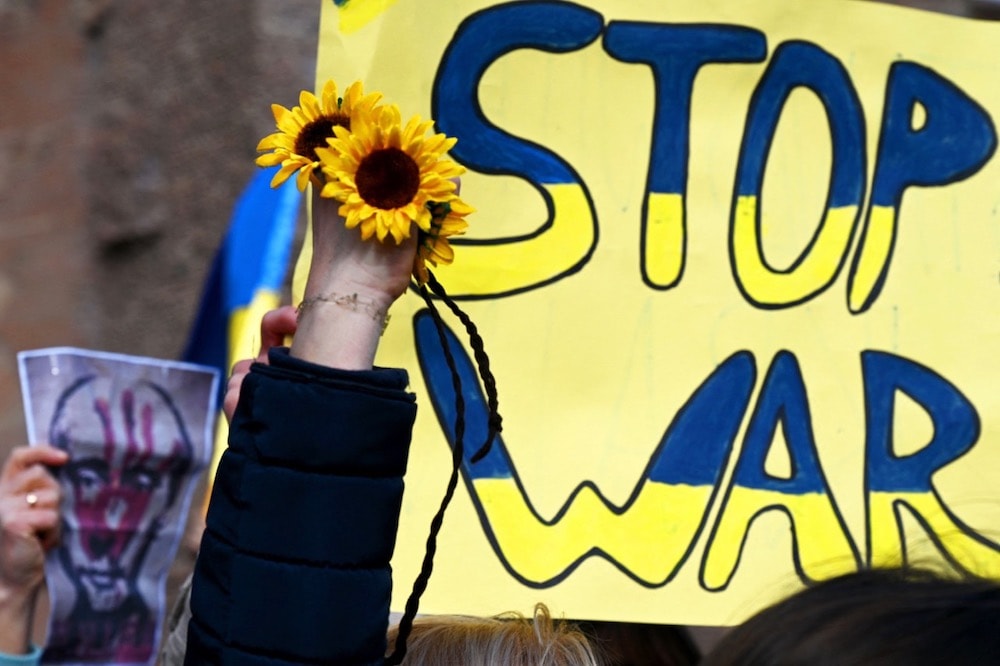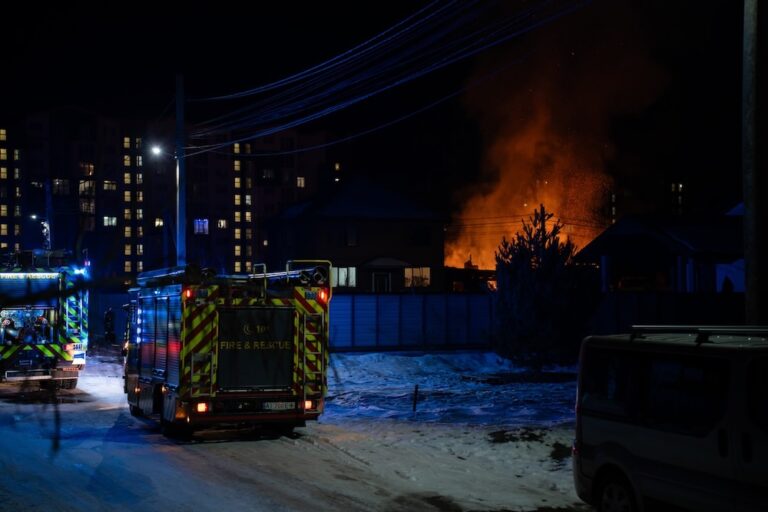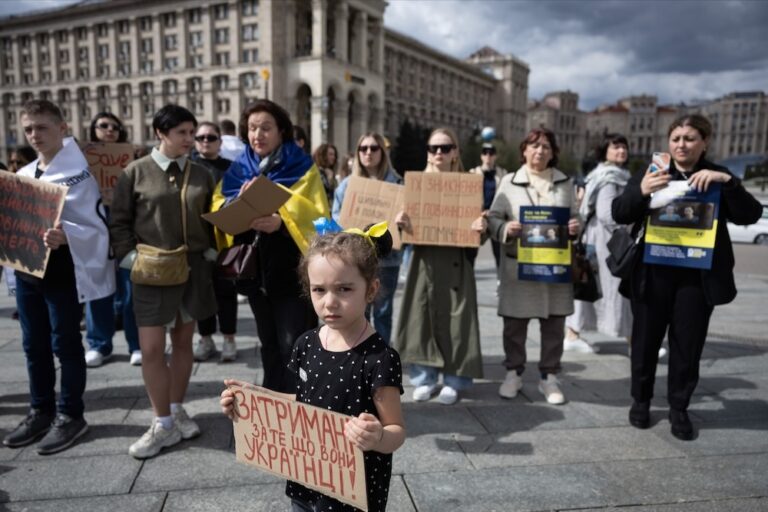Held for nine days, the 'Radio France' fixer was beaten with an iron bar, tortured with electricity, and subjected to a mock execution.
This statement was originally published on rsf.org on 21 March 2022.
Kidnapped by Russian troops on 5 March, Nikita (his name is changed for his safety) was held for nine days. He was beaten with an iron bar, tortured with electricity, and subjected to a mock execution. Reporters Without Borders (RSF) has collected and verified his story.
A week after the facts, RSF reveals the shocking account of a 32-year-old Ukrainian fixer and interpreter, who was taken prisoner by Russian soldiers on March 5 in central Ukraine. Held captive for 9 days, left in an icy cellar, he was repeatedly tortured. This man (the name was changed for security reasons) was detained alone before being joined by three other prisoners, including a former senior Ukrainian civil servant. Nikita’s account is frightening: machine-gunning of his car, torture with a knife and electricity, repeated beatings with rifle butts and steel bars in the face and body, mock execution, food deprivation for 48 hours…
Safe (for the time being) in a Ukrainian town, Nikita told RSF about his nine days of horror. Although trained as a lawyer and manager, Nikita has worked intermittently as a fixer and interpreter for foreign media since 2013. The media outlets he has worked for include France 2, BFMTV and RFI. Last month, the IT company that employs him began having problems because of the war, so he started working full-time as a fixer, this time with Radio France. Among the foreign reporters who have employed him, those contacted by RSF are unanimous: he is very professional, serious and competent. And like any Ukrainian, he has been very worried about his family as the indiscriminate Russian bombardments have grown in intensity.
RSF began looking for Nikita after being told by Radio France on 8 March that he was missing and, after his release, finally established contact with him via the Press Freedom Centre that has been opened in Lviv. His account was taken down by senior staffs of RSF’s Advocacy and Assistance Department during several sessions on 17 and 18 March. The various parts of his account were corroborated by interviews with a member of his family, with one of his former fellow prisoners, and with two Radio France journalists. An RSF staff accompanied him during his medical examination, which confirmed the physical mistreatment to which he was subjected, in particular, the bruising and other injuries to his legs where electric shocks were inflicted. RSF was also present during his calls to his family.
RSF plans to pass his account to the International Criminal Court’s chief prosecutor, as a follow-up to the two complaints that it has already filed with the prosecutor on 4 and 16 March.
“Nikita has given us a chilling testimony that confirms the intensity of the war crimes perpetrated by the Russian army against journalists,” RSF secretary-general Christophe Deloire said. “Passing his testimony on to the ICC prosecutor is the least we can do for this courageous young fixer.”
Although traumatised by the ordeal he has gone through, Nikita is determined to continue working as a fixer in order to help realise the right to news and information. It is his way of contributing to his country’s freedom because he says he is no good at wielding a gun. One of his fellow detainees is hospitalised with serious injuries. The fate of the former senior civil servant is unknown. The other prisoner, the one RSF was able to contact, said he got away without too many injuries or other consequences. When RSF asked him why he thought they were released rather than executed, he replied: “I don’t think they had the courage to dig graves.”
Oleg Baturin, a Ukrainian journalist who was released on 20 March after being held for eight days by the Russian army and being treated in a similar manner, said: “They wanted to break me, walk all over me, to show what will happen to every journalist, that you will be killed.”



